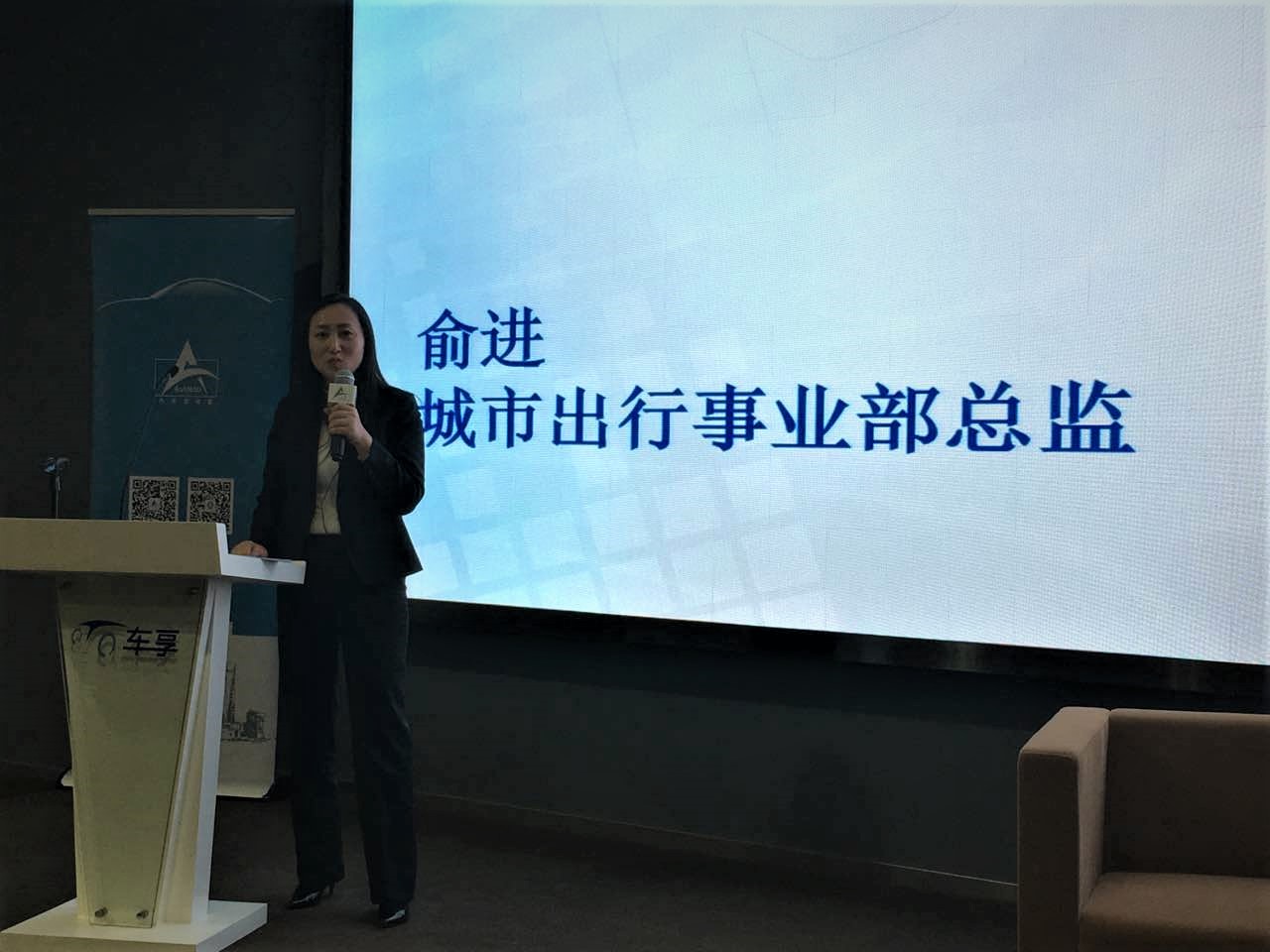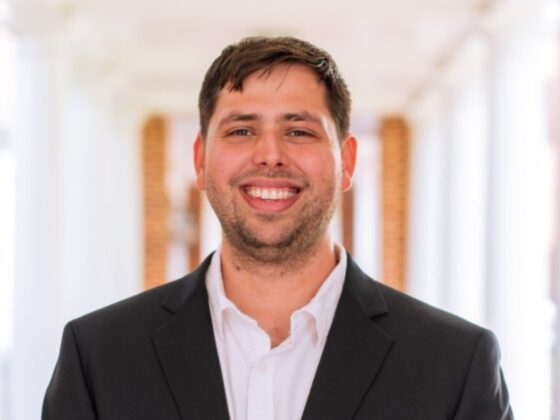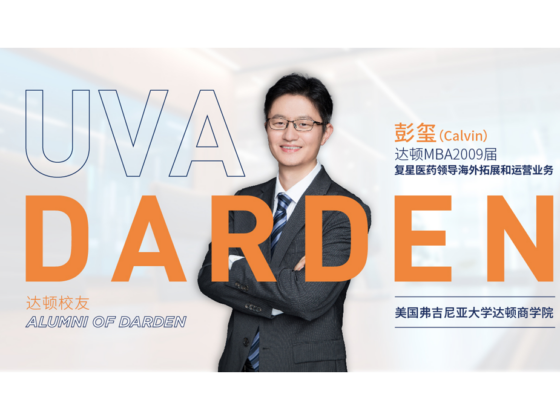When University of Virginia Darden School of Business alumna Vivian Jin Yu (MBA ’03) was working as finance director of General Motors China, she gave the idea of car sharing short shrift, seeing it as no different than traditional car rental services.
She went from skeptic to proponent after seeing how technology had disrupted the market, making it more convenient and efficient for GM’s customers to rent cars. Rather than exchanging physical documents, car share users sign up on an app that unlocks and starts one of GM’s fleet of cars, Yu says.
In 2014, she took a job as director of urban mobility for GM in China, working directly on car sharing initiatives. She wanted to realize GM China’s vision of a future where people stop owning and driving cars, instead hailing rides in automated vehicles that do not pollute the air or crash. The company plans to launch 20 models of all-electric cars globally by 2023, and 60 percent of GM’s on-demand cars in China are entirely electric-powered, says Yu.
“This is the transformation of the automotive industry — electrification, autonomous driving and mobility services,” she says.
China is crucial to that future because it is the world’s largest automotive market by sales (for all vehicles). And, according to the World Health Organization, it is also among the top countries with the most polluted urban areas.
“Electrification is super important in China, and the government has put more emphasis on this,” says Yu. “There are lots of players here in China, like [ride-hailing and sharing app] Didi Chuxing, so people are getting more used to the idea of car sharing.”
Accelerating Career Follows Bumpy Start
Yu’s ride with GM did not start totally smooth. She joined the company’s Chinese business as a financial controller for special projects at the height of the global financial crisis in 2009. GM, America’s biggest carmaker, had just declared bankruptcy. “It was really challenging,” Yu says. “We were told that GM China had to survive on its own, so we worked on finding credit lines to support our operations here. I was working 24/7, on conference calls from the early morning until late at night.”
The skills she developed as a Darden MBA helped her conduct financial analyses confidently. Studying corporate finance gave her the technical skills she needed to get hired by GM in 2003, initially as treasury manager in New York, where she worked for six years in a role that included hedging against swings in commodity prices and foreign exchange rates.
Later, it was the “soft” skills that helped her move up the corporate rungs, including how to communicate a vision and lead diverse teams. “Even if I can do a super fantastic analysis of numbers, if I cannot tell the story right, understand what the audience is looking for, work with a different function to get everyone’s head around a strategy, I can’t achieve what I need to,” says Yu.
The Darden MBA education experience was crucial to her transition from finance to running GM’s urban mobility business in China, which Yu cites as both her biggest achievement and challenge. “The roles are totally different,” she says, explaining that finance is more straightforward while running a business is more of a process of discovery. “There’s no written rules for you, no job description. You have to explore everything and try different things.”
Studying a broad range of cases, functions, industries and cultures was good preparation for this ambiguity, she says. “I would not be where I am now without Darden.”
The car sharing industry is undergoing fast and frequent changes, from regulation to shifts in consumer tastes. GM China has evolved its offering to match this dynamic environment, for example experimenting with a ride-sharing service. Some 700 employees at the company’s Shanghai headquarters trialed a carpooling mobile app, but Yu says she ultimately decided that car rentals would provide a stronger opportunity.
“It’s a challenging but critical question we are trying to answer: What role do we want to play in the future of the automobile?” she says. The answer to that question could define her career and potentially much more.





